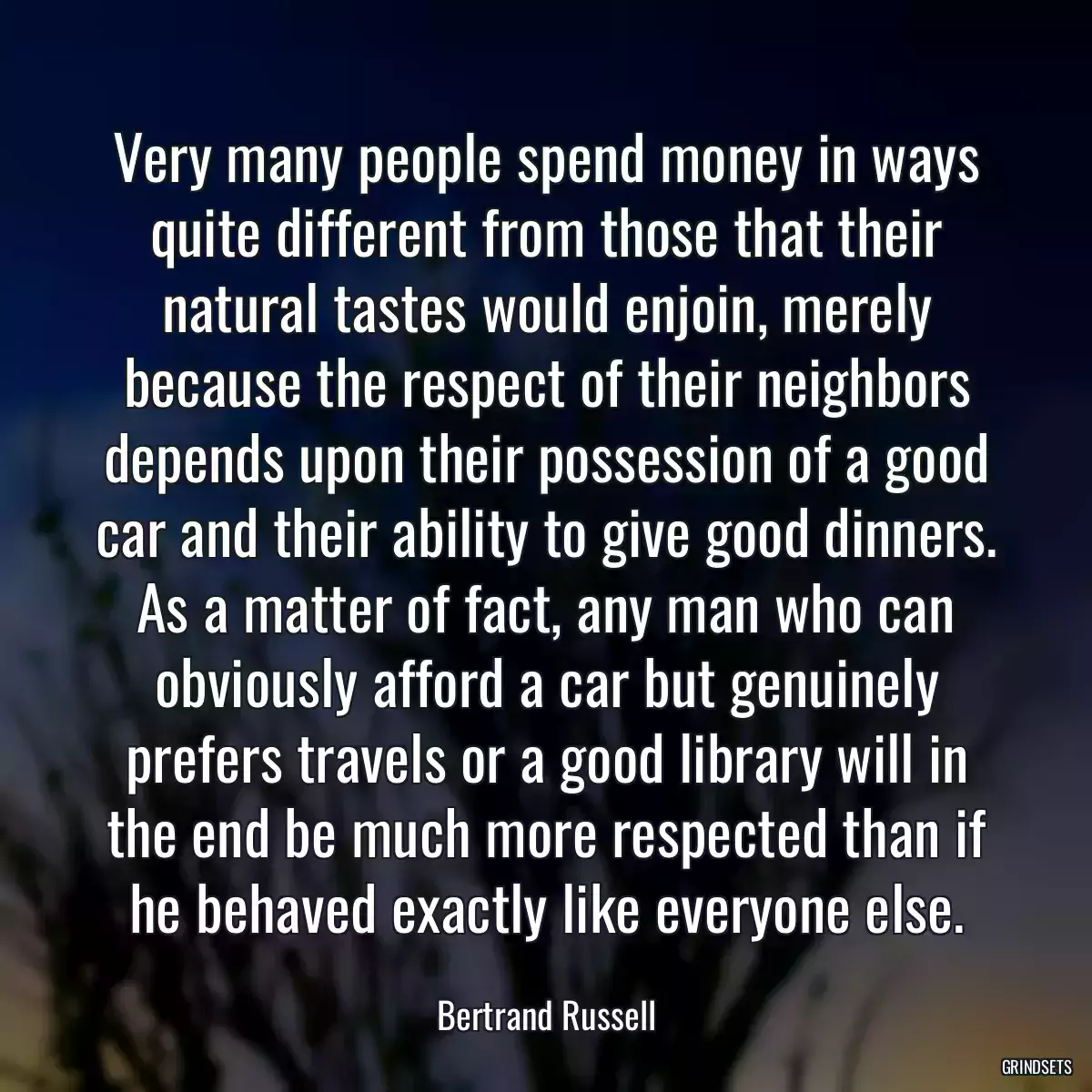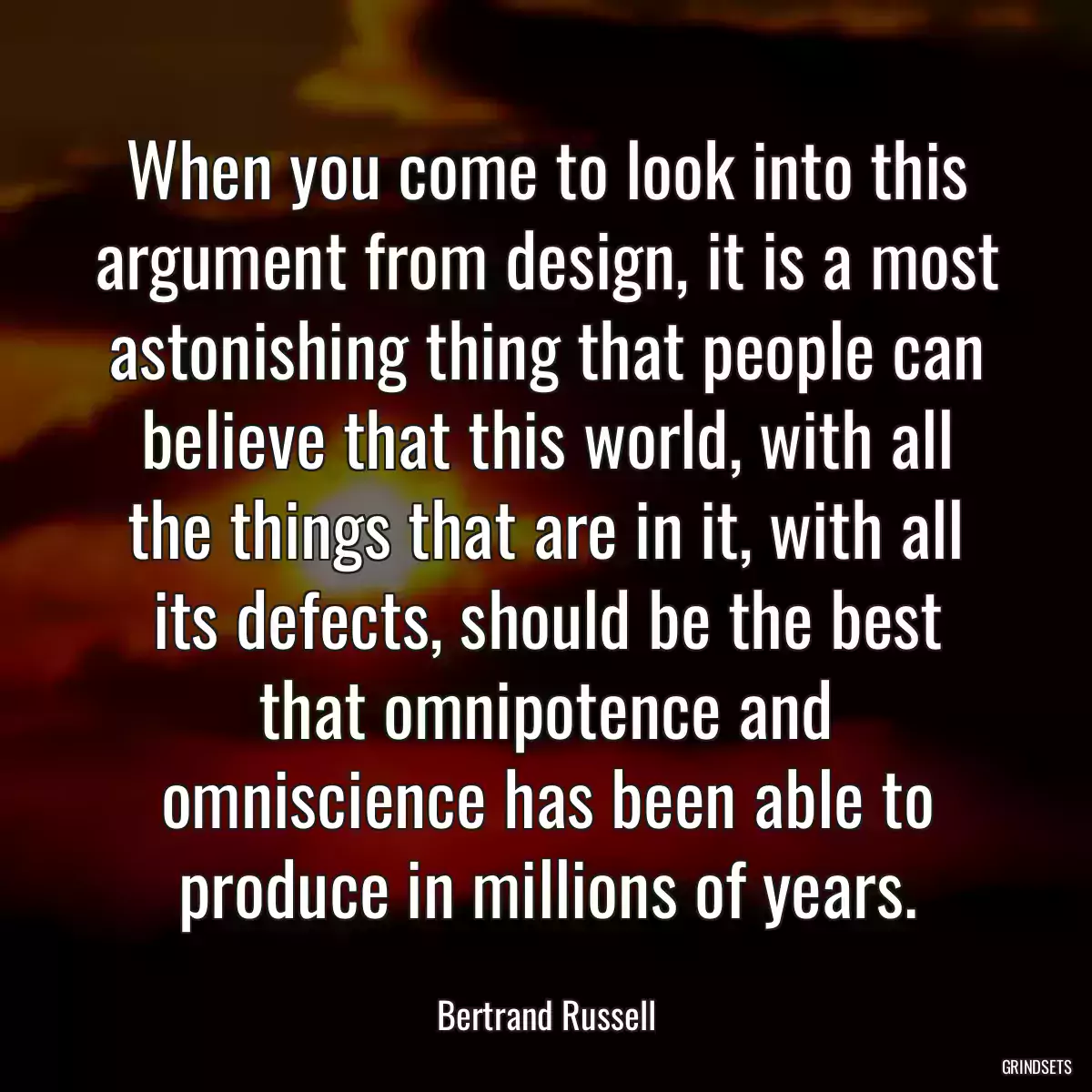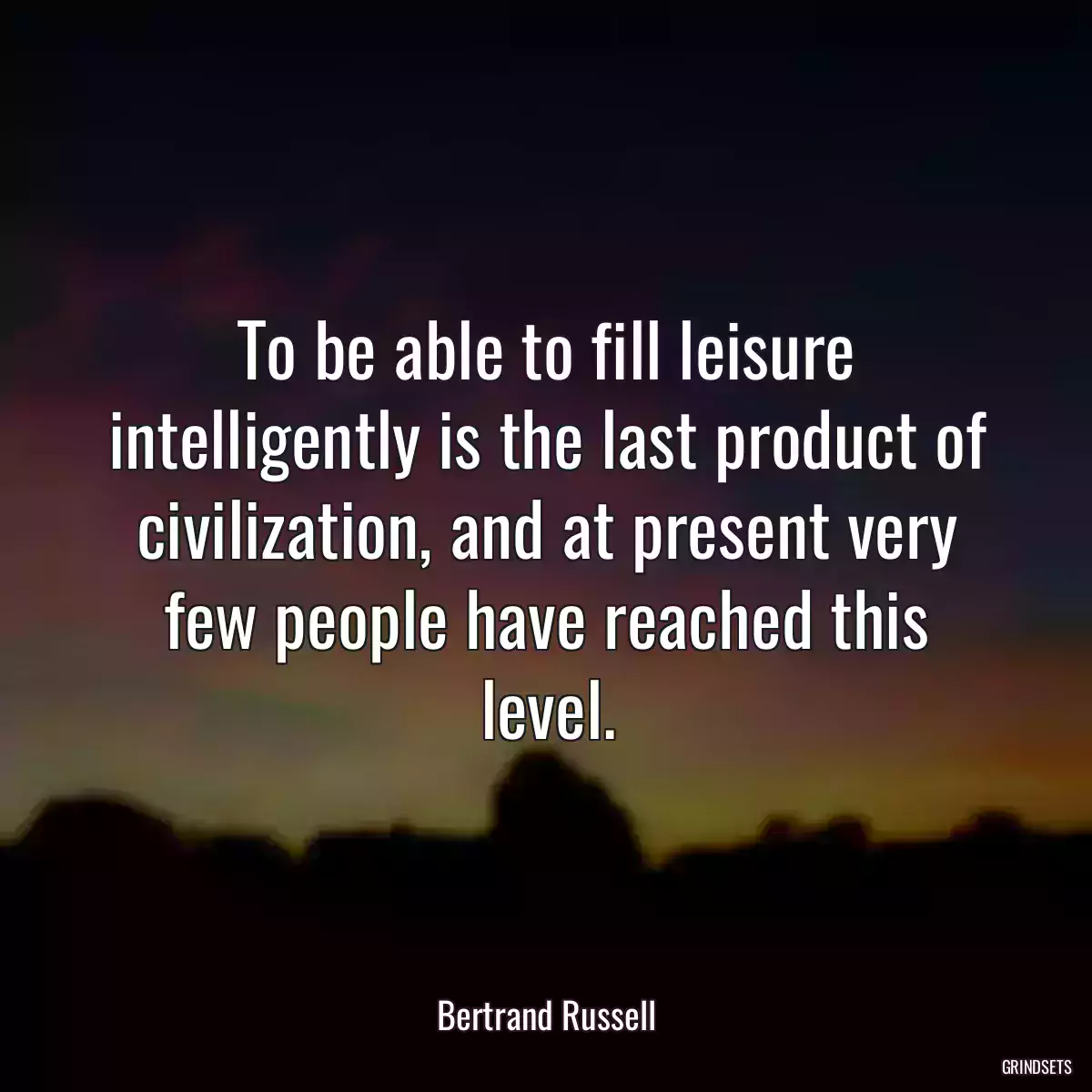
Very many people spend money in ways quite different from those that their natural tastes would enjoin, merely because the respect of their neighbors depends upon their possession of a good car and their ability to give good dinners. As a matter of fact, any man who can obviously afford a car but genuinely prefers travels or a good library will in the end be much more respected than if he behaved exactly like everyone else.

